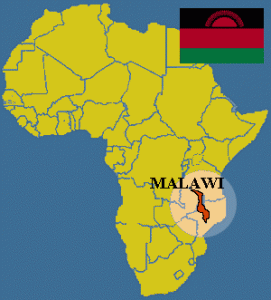 Many of the African children and adults that Arizona State University doctor of audiology student Nicole Corbin performed hearing evaluations on were given a free hearing aid because of the university’s Hearing for Humanity program.
Many of the African children and adults that Arizona State University doctor of audiology student Nicole Corbin performed hearing evaluations on were given a free hearing aid because of the university’s Hearing for Humanity program.
But encountering a teenager who was presumed deaf and discovering he was not remains one of Corbin’s strongest memories of the trip she took with audiologists and fellow students to Kenya and Malawi in 2010.
After running tests on the boy, Corbin found he had a big hole in his eardrum and although his hearing was impaired, he could hear. She informed someone from the local university who arranged for him to undergo surgery to correct the problem.
“I was like, oh my gosh, he has hearing,” recalled Corbin, who is in her third year. “He had something that could be treated medically but was using sign language this whole time.”
Over the course of that five-week trip, Hearing for Humanity provided audiological services and hearing aids to more than 500 people with significant hearing loss, a rampant problem in developing countries where funding and expertise elude many rural cities and villages.
Corbin was among the small team that made the inaugural journey to give the gift of hearing to those who had been sentenced to live a life in silence.
“It was amazing and very fast-paced,” Corbin said of the typical day. “It was exhausting, but it didn’t matter because the impact was so huge. The best part was seeing them walk away with smiles on their faces.”
This summer, the ASU program will send another group of students and audiologists to Malawi. Fundraisers will generate the money needed for the trip and supplies, including hearing aids.
The team will head into a part of the world where regular hearing screenings do not exist, an ear infection can be fatal and medications used to treat malaria and other serious diseases often lead to deafness.
Each year, complications from ear infections are the cause of death for 51,000 children 4 and under in developing countries, according to the World Health Organization. About 50 percent of hearing losses are preventable, said Ingrid McBride, clinical associate professor and director of audiology at the speech and hearing clinic at ASU.
“Ear infections here rarely lead to something more complicated. In Africa, that’s not the case. It goes untreated and leads to serious complications,” she said. “There is a lack of resources and trained professionals, so hearing problems are widespread.”
Students and professionals also provide training to existing personnel, such as teaching them how to test the hearing aids.
McBride described treating a young woman who was severely hearing impaired after enduring malaria, a bevy of other illnesses and the medications used to treat them. She was forced to drop out of a teacher’s aide program because of her impairment. McBride fitted her with a new hearing aid and wrote a letter to the school so she could be reinstated and pursue her career.
“That made a really big impact. It was a huge accomplishment,” McBride said.
The team and its efforts never met any resistance, she said. The reaction was the opposite.
“There was an overwhelming number of people who came running for help. We were welcomed with open arms,” McBride recalled.
Chasity Moore recalled strolling through town when children would walk up and hold her hand when she went on that first trip.
“They would hold on to you for dear life,” the third-year audiology student said. “We were trying to do incredible things and I was shocked by how the smallest things made a difference.”
Third-year audiology student Courtney Caron is excited and nervous to go on what will be her first trip out of the country when she travels to Malawi this summer. She has been busy preparing with her fellow team members and said she looks forward to having an overall satisfied feeling that comes from making a difference in others’ lives.
Caron has clinical experience working with lower-income families in this country but is ready for an unexpected wide range of situations and emotions.
“It will be something, to be able to give the gift of hearing to someone who doesn’t have it,” she said. “There will probably be more than one thing that brings me to tears, but it’ll be a learning experience. I’m honored and privileged to be part of improving someone’s life.”
The program is seeking a hearing-aid company that would be willing to donate the devices. A repair company has agreed to refurbish used hearing aids and sell them back to Hearing for Humanity for $57 each, a fraction of what the typical price would be, Caron said.
“I’m hoping that people who go to Starbucks realize that if you didn’t go to Starbucks for two weeks, saved that money and wrote a check for that amount, you just bought a child a hearing aid,” she said.
Hearing for Humanity will hold several fundraisers to support the upcoming trip to Africa and purchase supplies and equipment. One of them is the AZ Walk to Silence Tinnitus through the American Tinnitus Association on March 24.


.jpeg&w=60&q=100&h=60)





.jpeg&w=60&q=100&h=60)




